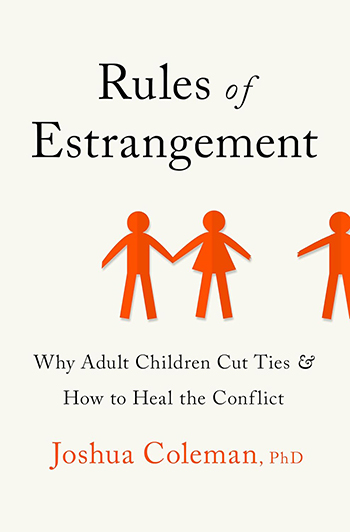
What's Behind the Rise of Parent-Child Estrangement?

The Art of Manliness
Deep Dive
Why are parent-child estrangements on the rise?
Estrangements are rising due to a cultural shift from obligatory family ties to more individualistic and optional relationships. This shift, combined with the expansion of what constitutes abuse and trauma, has made it easier for adult children to cut ties. Divorce, non-marital childbirth, and social media have also amplified these trends.
What are the common reasons for parent-child estrangement?
Common reasons include emotional abuse, values differences, physical abuse, divorce, new family members causing resource competition, mental illness, and poor therapy that blames parents for adult issues without a comprehensive understanding. Some adult children also feel they need to cut ties to establish boundaries and independence.
How has the cultural understanding of trauma and abuse changed over the past few decades?
The concept of trauma and abuse has expanded significantly. What was once considered normal parenting behavior may now be labeled as harmful or abusive, leading to more instances of estrangement. This expansion can be both empowering and problematic, as it allows people to discuss painful experiences but can also lead to misdiagnosis and unwarranted cutoffs.
Why is it harder for parents to reconcile with estranged children?
Parents often bear the brunt of the emotional pain and are more motivated to reconcile. Adult children, who initiated the estrangement, may feel empowered by the separation and see it as a way to protect their mental health and personal growth. Parents must take the initiative and show humility to open the dialogue, while adult children often need time and space to heal.
What role can therapists play in parent-child estrangement?
Therapists can sometimes inadvertently encourage estrangement by focusing too much on childhood experiences and diagnosing absent parents. This can lead to a one-sided narrative where adult children feel justified in cutting ties. Therapists should aim to understand both sides of the story and not make premature judgments.
What is an 'amends letter' and why is it important for reconciliation?
An amends letter is a sincere, empathetic communication from a parent to an estranged child. It acknowledges the child's feelings and shows a willingness to understand and take responsibility for past mistakes. This letter is crucial for opening a dialogue and demonstrating the parent's commitment to healing the relationship.
How does estrangement affect grandchildren?
Estrangement can be particularly harmful to grandchildren, who often lose contact with their grandparents. Even if the grandparent was a positive influence, they become casualties of the parent-child conflict. It's important for adult children to consider the impact on their own children when making the decision to estrange from a parent.
What are the downsides of cutting off toxic people in your life?
While cutting off toxic people can be beneficial, it can also prevent personal growth and resilience. Learning to manage and deal with difficult family members can help individuals develop better coping mechanisms and emotional maturity. It's important to balance self-protection with the effort to improve and maintain relationships.
How does the concept of masculinity contribute to male estrangement from parents?
Men may be more susceptible to estrangement from parents, especially if influenced by a partner who criticizes their relationship with their parents. The cultural stigma against being a 'mama's boy' can pressure men to distance themselves from their mothers, making it easier for a partner to influence this decision.
What does Joshua Coleman advise parents to do if their amends letter is not received well?
If the initial amends letter is not received well, parents should wait for about a year before attempting to reach out again. They should stop immediately if they receive police calls, returned letters, gifts, or restraining orders, as these indicate that the situation is too inflamed for further attempts. Patience is key, as adult children may need significant time to process and heal.
Shownotes Transcript
These days, you hear more and more about parents and adult children being estranged from each other. Some individuals have even decided to go "no contact" with their parents; they don't want anything to do with their mom and/or dad at all.
To understand what's behind this phenomenon, today I talk to Joshua Coleman, a psychologist who's spent 40 years counseling families and the author of Rules of Estrangement: Why Adult Children Cut Ties and How to Heal the Conflict). Joshuagoes beyond the typical one-sided narratives around parent-child estrangement that tell the story of parents who got what they deserved or overly entitled adult children who wrongly blame their parents, to unpack the larger cultural context for why these tensions have arisen. We discuss how society has moved from upholding a honor-thy-father-and-mother sense of obligation to prioritizing individuality and optionality, and why despite the fact that we're more child-focused and psychologically aware than ever, familial estrangements are on the rise. We get into the common reasons for estrangement, the role that expanding ideas of what constitutes abuse and trauma and an adult child's therapist can play in it, and how much parents can really be blamed for how their kids turn out. And we get into what parents who are estranged from their children can do to reconcile with them. Even if you're not personally estranged from a family member, the discussion of the underlying dynamics influencing all our modern relationships is a fascinating one.
Resources Related to the Podcast
Connect With Joshua Coleman
